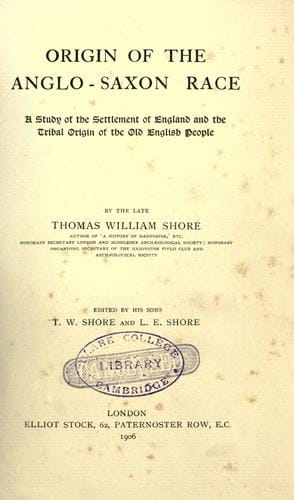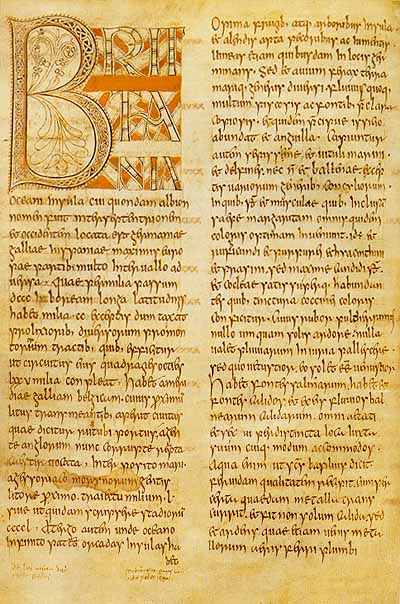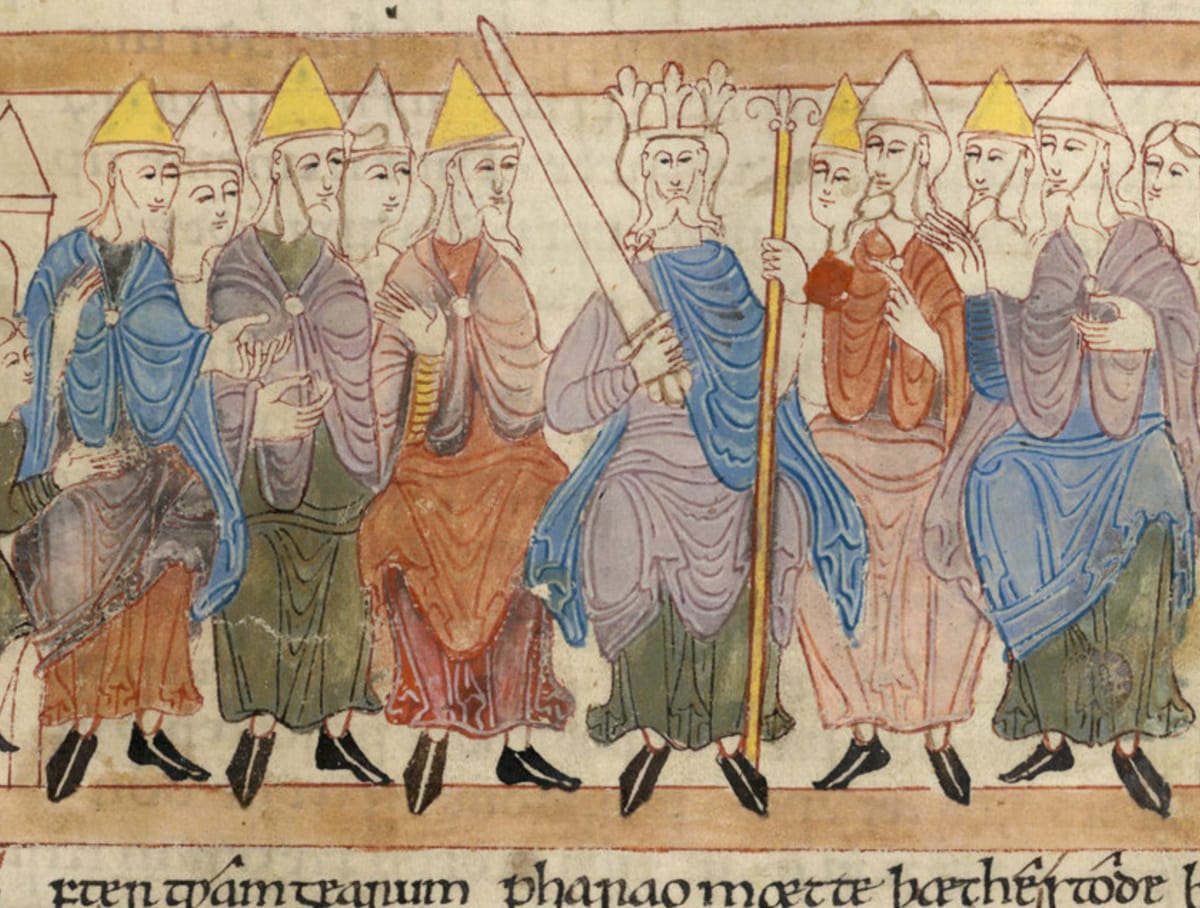There is often a statement on blogs that the ancestors of today's English are not the Angles and Saxons, but Slavic tribes. We decided to check if this is true.
The article entitled “The Slavs are the ancestors of the British, British scientists believe” was published in "Zen", in the community "History of Russia» with 557,000 subscribers. It states that long before the Angles, Saxons and Jutes, the British Isles were inhabited by other tribes - the Vandals and Rugs, which the article calls Slavic. This version is also found on popular historical sites, for example “Story. Interesting!", and in the VKontakte community "Historical club"
In most records, the main source of knowledge about the Slavs as the ancestors of the English is the book of the British historian Thomas William Shore "Origin of the Anglo-Saxon people" The book was published in 1906, the year after the author's death. The work was not published in Russian; only unofficial translation its first part.

One of the first chapters of the book dedicated Slavic tribes. In a translation popular on the Internet, statements are accompanied by emotional comments from the translator. In the original, Shore puts forward a version according to which representatives of the Vandal and Rug tribes began to move to England 200 years before the Angles and Jutes. Then Shor, without denying that the Vandals and Rugi of the 4th century are German tribes, suggests that their ancestors, the ancient Vandals and Rugi, could have been of Slavic origin. The British historian, citing examples from English toponymy and relying on archaeological data, puts forward a hypothesis about the significant influence of these tribes on the development of the Anglo-Saxon people.
The influence of the Vandals and Rugs (the latter, according to another version, came to the islands along with the Angles, Saxons and Jutes) on English history is the main topic of Shore's research. But in this case, we are more interested in how correct it is to talk about their Slavic origin.

Most often, evidence of the Slavic origin of the Rugs is the mention of this tribe in connection with Ancient Russia. Thus, the 12th century English chronicler Roger of Hoveden tells, how the son of the Anglo-Saxon king Edmund Ironside "fled from this land to the land of the Rugians, which we call Russia." Even earlier, at the end of the 10th century, Bishop Adalbert of Magdeburg calls Princess Olga reginae Rugorum - “queen of the rugs.”
Historian Alexander Nazarenko, specialist in Russian-German relations in the Middle Ages, believedthat here we are talking about the so-called scientific ethno- and toponymy. The authors of the chronicles, while maintaining an elevated style of narration, specifically cited ancient ethnonyms, “ancientizing” the origin of the peoples for greater solidity. Thus, the Hungarians in Byzantine texts became the Huns, and the Rus became the Tauro-Scythians. The tradition was preserved in Latin monuments: the Goths turned into the ancient Getae, and the Danes into the Dacians, although both the Getae and the Dacians lived much further south. This, obviously, happened with the rugs that were revived in written monuments by the 10th century.
The path of the Rugians can be easily traced through the writings of ancient authors. Roman historian Tacitus describes them as the Germanic people living on the Baltic coast. Gothic historian Jordanes tells, that the Goths (whom he calls Getae) forced the Rugi to move south, to the banks of the Danube. Finally, Paul the Deacon in the History of the Lombards narrates about the war of the barbarian king of Italy Odoacer with the Danube Rugians (Rugians), after which the last state of the Rugians was destroyed. In most sources they are invariably called the Germanic people.
In his book, Thomas Shore identifies the ancient Germanic tribe of Vandals and Slavic Wends. Evidence of the penetration of the Slavs into Britain, according to the author, is the presence of Slavicisms, ethnonyms and place names in the Old English language. Now modern scientists are sure that the Vandals and Wends are different tribes, although they lived in the neighborhood between the Oder and the Vistula. Interpenetration of two cultures and the influence of Roman civilization on them is proven archaeological research. But, as academician Valentin Sedov, head of a department at the Institute of Archeology of the Russian Academy of Sciences, notes in his article, “there cannot be a straightforward answer to the question of the relationship between archaeological cultures and ethnic groups.” Both tribes belonged to the Przeworsk culture, but traces of this culture disappear after the 4th century due to the invasion of the Huns.
There are indeed traces of Slavic influence in ancient England. But this may be due to the contacts that the Angles, Saxons and Jutes had with the Slavs. There is no reliable evidence of the Slavic origin of Vandals and Rugs. In addition, representatives of other tribes that moved to the islands (the same Rugians or Frisians), apparently, assimilated and dissolved among the Angles and Saxons. Therefore, the statement about the Slavs as the ancestors of the British can hardly be taken seriously. But completely exclude the fact that among the warriors, landed in Britain in the 4th century, there were some descendants of the Slavs, it is impossible. Another thing is that this resettlement certainly did not have a mass character.
Mostly not true
Read on topic:
- Trouble Hon. Ecclesiastical history of the English people
- A. V. Nazarenko. Ancient Rus' on international routes: interdisciplinary essays on cultural, trade, political relations of the 9th–12th centuries
- V. V. Sedov. Ethnogenesis of the early Slavs
If you find a spelling or grammatical error, please let us know by highlighting the error text and clicking Ctrl+Enter.






